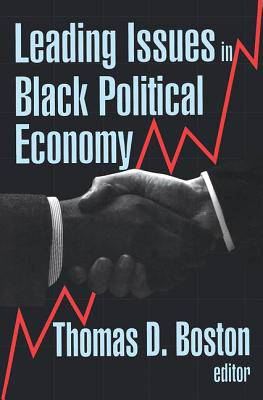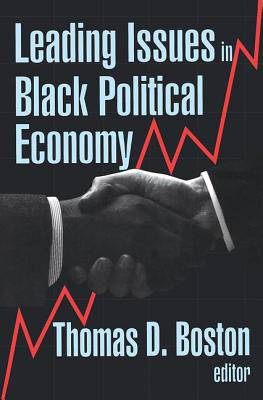
- Afhalen na 1 uur in een winkel met voorraad
- Gratis thuislevering in België vanaf € 30
- Ruim aanbod met 7 miljoen producten
- Afhalen na 1 uur in een winkel met voorraad
- Gratis thuislevering in België vanaf € 30
- Ruim aanbod met 7 miljoen producten
Zoeken
€ 182,45
+ 364 punten
Uitvoering
Omschrijving
Leading Issues in Black Political Economy brings together the foremost experts on issues ranging from employment, training, and education of African Americans. It also emphasizes macro-economic concerns of business development with special emphasis on long-term trends of black-owned businesses. The work emphasizes welfare considerations in an anti-welfare epoch, and the role of affirmative action now that it is under attack. Attention is given to the role of race in the continuing disparity of income distribution in American society. The highlights of Leading Issues include "An Employment and Business Strategy for the Next Century: A Comment," by Thomas D. Boston; "Long Term Trends and Prospects for Black-owned Business," by Andrew F. Brimmer; "Is the U.S. Small Business Administration a Racist Institution?" by Timothy Bates; "Worker Re-Training and Labor Market Outcomes: A New Focus for Labor Research," by James B. Stewart; "Race, Cognitive Skills, Psychological Capital, and Wages," by Arthur H. Goldsmith, William Darity, Jr., and Jonathan R. Veum; and "Reparations and Public Policy," by Richard F. America. The overall findings suggest that empirical wage equation specifications do matter. The role of psychological capital is critical in the marketplace. Race is indeed an important determinant of wages-especially when the influence of both cognitive skills and psychological capital are included in the wage equation. This volume will be of crucial interest to economists, political scientists, sociologists, and policy analysts studying African-American life. Thomas D. Boston is editor of the Review of Black Political Economy and professor of economics at the Georgia Institute of Technology. He is the co-editor, with Catherine L. Ross, of The Inner City: Urban Poverty and Economic Development in the Next Century, also available from Transaction.
Specificaties
Betrokkenen
- Auteur(s):
- Uitgeverij:
Inhoud
- Aantal bladzijden:
- 550
- Taal:
- Engels
Eigenschappen
- Productcode (EAN):
- 9781138527041
- Verschijningsdatum:
- 8/06/2018
- Uitvoering:
- Hardcover
- Formaat:
- Genaaid
- Afmetingen:
- 160 mm x 231 mm
- Gewicht:
- 1247 g

Alleen bij Standaard Boekhandel
+ 364 punten op je klantenkaart van Standaard Boekhandel
Beoordelingen
We publiceren alleen reviews die voldoen aan de voorwaarden voor reviews. Bekijk onze voorwaarden voor reviews.











